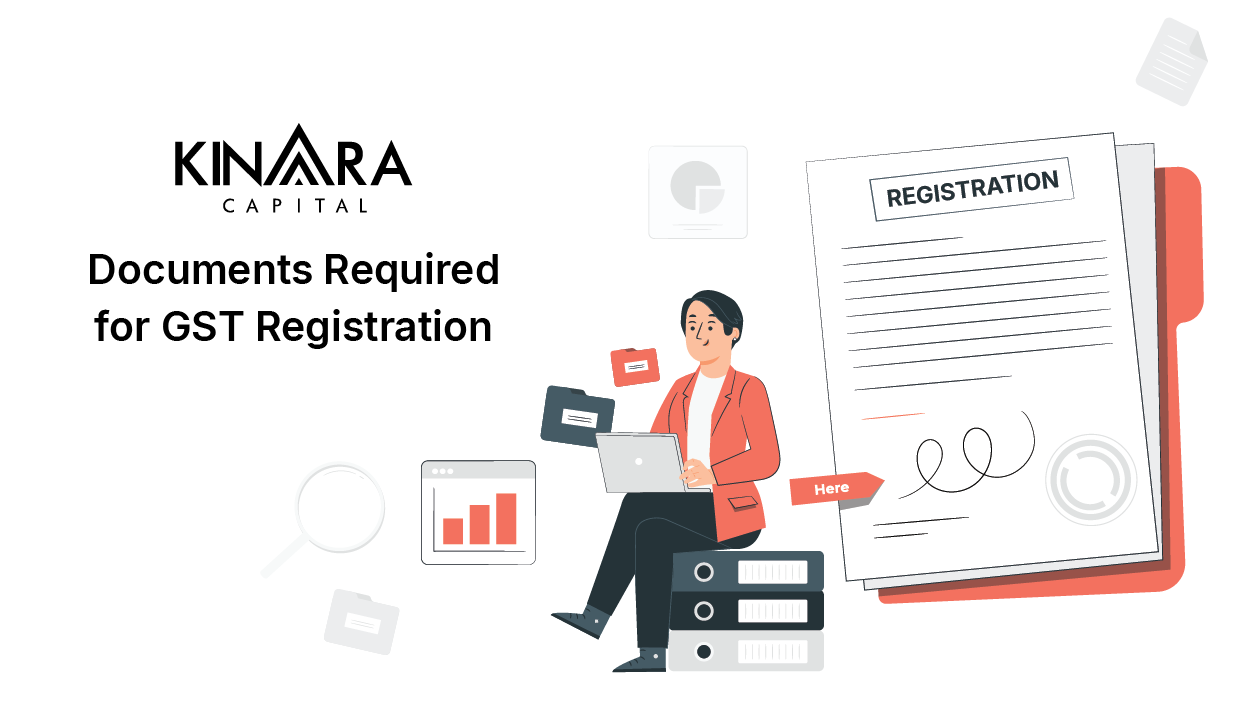
GST registration is essential for businesses in India to comply with Goods and Services Tax (GST) laws. It is an indirect tax that includes all India’s taxes in a single taxation system. Businesses must file documents showing their identity, address, and business to register for GST. These documents required for GST registration not only maintain the integrity of the system but also help companies operate legally and effectively. Unless registered, it is impossible to get any benefit of input tax credits accrued to the businesses and for compliance with tax laws to avoid penalties and prosecution. Moreover, having GST registration improves the business’s credibility and enables it to expand its market reach by engaging in inter-state trade without any legal hassles. This process is vital for maintaining transparency and ensuring a smooth flow of goods and services across the country.
GST registration is mandatory for various entities and individuals under specific conditions. Here’s a detailed overview:
Register for GST online to facilitate smooth business operations across India. Proper GST registration for businesses helps with legal compliance and offers benefits such as input tax credits.
For GST registration for a business or sole proprietorship, the following documents are necessary:
The GST registration documents ensure that the business complies with GST regulations and can smoothly complete the GST registration process.
The documents required for GST registration for a business, includes MSME (Micro, Small and Medium Enterprises) and sole proprietorships include proof of business registration, identity and address proofs, PAN card and other details. However, for the complete process, specific GST registration documents are required based on the type of business entity. Below is a detailed list:
Follow the guidelines for GST registration for MSMEs and individual proprietorships. It will help you comply with tax regulations efficiently and maintain legal business operations.
Gathering the required documents for GST registration ensures compliance and smooth business operations. Proper documentation ensures a hassle-free registration process and helps businesses avoid delays and complications. It provides legal benefits, such as input tax credits and improved business credibility, allowing entities to expand their market reach and engage in inter-state trade without legal issues.
Kinara Capital extends unsecured business loans tailored for small enterprises to capitalise on every growth prospect. Enrolled MSME Business owners can swiftly assess their loan eligibility in just 1 minute by commencing the digital-first application procedure on the Kinara Capital website or by downloading the myKinara App. Eligible MSME entrepreneurs can furnish the requisite documents, and the loan funds will be digitally disbursed to their bank account within 24 hours.
We have a dedicated customer support team available between Monday – Friday (9.30AM – 6.00PM) at our toll free number 1800-103-2683 for any questions or assistance. This ensures that entrepreneurs can get the help they need throughout the loan process.
Registering for GST in India is free if you do so through the official GST portal. The government does not charge any fees for the registration process. However, if you hire a professional service to help with the registration, they might charge a fee for their assistance. These fees vary depending on the service provider and how complex your registration is.
When filing GST returns, you need several important documents. These include sales and purchase invoices, debit and credit notes, payment challans, and bank statements. You’ll also need to keep records of any advances received or paid. These documents help you accurately report your business transactions and claim input tax credits.
Yes, you can register for GST yourself by visiting the official GST portal. The process involves filling out some forms, verifying your details using one-time passwords (OTPs) sent to your mobile and email, and uploading the required documents. The online process is relatively straightforward, so you don’t need professional help to complete it.
Some people and businesses don’t need to register for GST. It includes those who only supply goods or services that are exempt from GST, like fresh fruits and vegetables. Farmers who sell their produce directly from their land also don’t need to register. Moreover, businesses with annual turnovers below Rs. 20 lakhs (or Rs. 10 lakhs in some cases) can skip registering. However, certain companies, like those that operate across state lines or e-commerce operators, must register regardless of their turnover.
The turnover limit for mandatory GST registration is Rs. 40 lakhs for businesses that sell goods and Rs. 20 lakhs for those that provide services. In special cases, the limit is Rs. 20 lakhs for goods and Rs. 10 lakhs for services. If your business exceeds these turnover limits, you need to register for GST.
